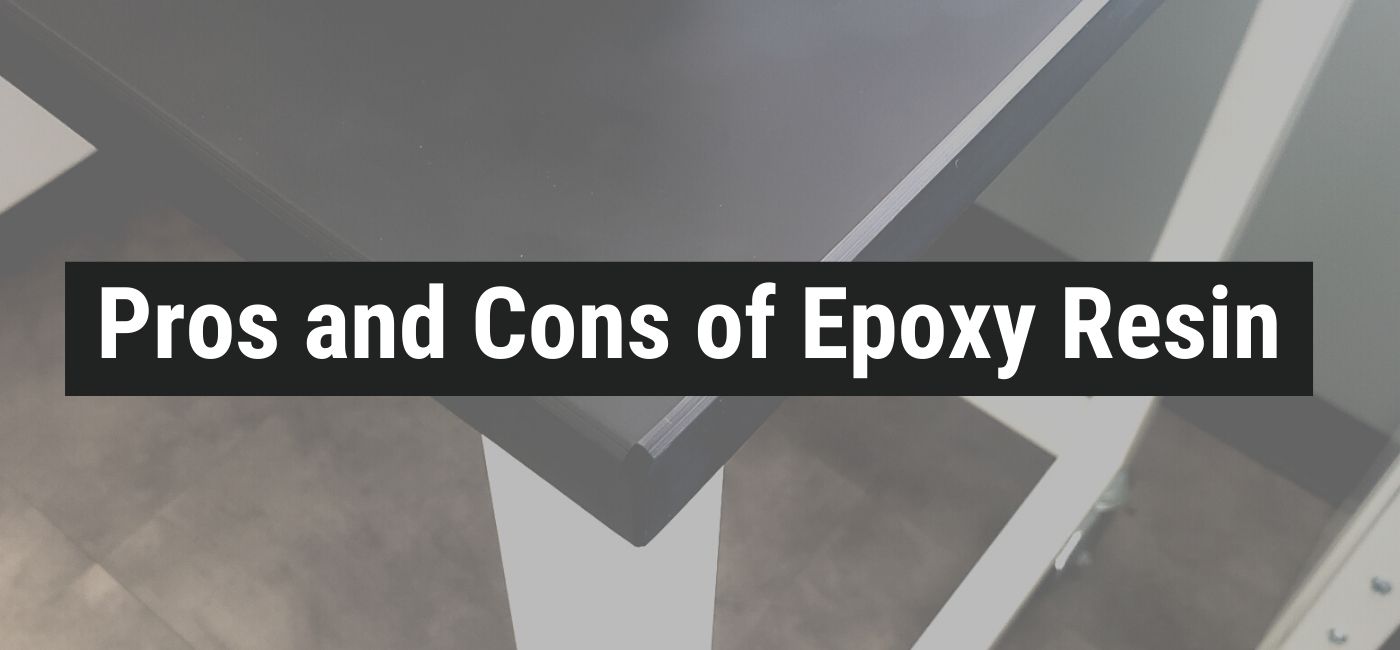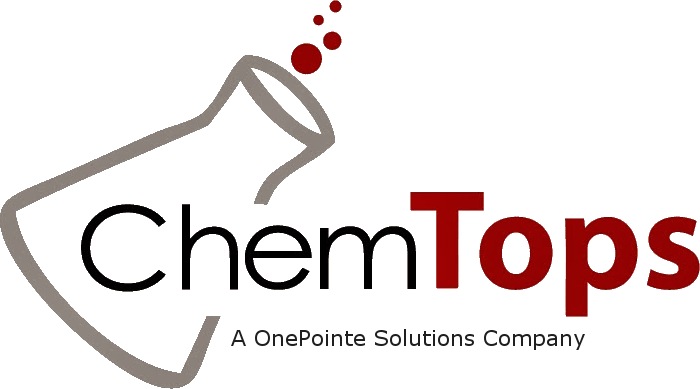
Pros and Cons of Epoxy Countertops
At Chemtops, we design and build custom lab furniture using the best and highest quality materials. We build lab furniture to be durable, long-lasting, and easy to clean, ideal for usage in labs of every type. Whether you run an educational lab or are working in a BSL-4 laboratory, our team can help you design and create an ideal solution for your unique needs.
Depending on what kind of work or research is being performed in your lab, you will need to select an appropriate surface material for your tables and workbenches. Though we offer a number of durable, high-quality surface materials, epoxy resin has become one of our most popular choices.
If you have been weighing the pros and cons of various surface materials, you have come to the right place. Here is your complete guide to the advantages and disadvantages of epoxy resin.
What is Epoxy Resin?
Favored for its versatility, epoxy resin is a thermoset
polymer that can be applied to a number of surface materials or mixed with a
variety of fillers. Epoxy resin can be poured and bonded to materials like
Formica, wood, concrete, metal, and so on to create a seamless, non-porous
surface. When mixed with fillers and substrates, the already strong epoxy resin
becomes even more durable and can be made to appear textured or patterned. Once
dry and cured, the epoxy resin becomes virtually indestructible, making it a
popular choice for labs in every industry.
Epoxy vs. Phenolic Resin
Epoxy and phenolic resin are often mistaken for one another, both possessing similar properties and finished looks. Though both are durable, long-lasting, and easy to clean/care for, epoxy and phenolic resins do each have their own distinct advantages and disadvantages.
If you are choosing between epoxy vs phenolic, we can guide your decision. From a bird’s eye view, epoxy resin tends to do better under certain chemicals (acid dichromate, ammonium hydroxide, cresol, dichloracetic acid, methyl ethyl ketone, monochlorobenzene, and phenol (90%).
Phenolic resin on the other hand stands up better scratches and mars, and has a chemical advantage when working with most other chemicals and acids.
Pros of Epoxy Countertops
Durability
Epoxy resin has become a popular choice for lab furniture designers and manufacturers primarily for its incredible strength and durability. Once dry, epoxy resin is virtually impossible to break and can withstand regular heavy impact and pressure without splitting, splintering, or cracking.
The addition of fillers like natural fibers, silica, or metals can increase the already incredible strength of epoxy resin or can be used to add aesthetic value. Epoxy resin is comparable to heavy-duty materials like stainless steel in most lab environments.
Beyond immense tensile strength, epoxy resin is also durable and hardy against a number of corrosive chemicals, solvents, and liquids able to withstand regular and prolonged exposure to harsh agents without damage occurring. Because it is seamless and non-porous, epoxy resin does not absorb liquids like water and is highly resistant to spills and moisture exposure.
A few of the chemicals epoxy resin is resistant to include:
- Alcohols
- Ammonia
- Butane gas
- Copper chloride
- Kerosene
- Magnesium sulfate
- Sodium nitrate
- High Gloss Finish
Love a glossy shine? You’re in luck: epoxy resin possesses a
natural high-gloss finish, one that is not easily dulled even after years of
use. Other materials require additional finishing steps or extensive routine
maintenance to achieve a similar glossy shine and often cost far more than
epoxy resin to use and install.
Cleanliness
In laboratory and food prep settings, maintaining worksurface cleanliness is of the utmost importance. Seams, cracks, pits, and scratches on the surface of your workbench or lab table can easily accumulate chemicals, dust, pollutants, and bacteria, making it difficult to fully sanitize the work surface.
Epoxy resin is seamless, non-porous, and not prone to scratching, pitting, or denting, creating a smooth and easy to clean surface that won’t collect unwanted bacteria. Cleaning epoxy resin is an absolute breeze, making it a favorite for pharmaceutical labs, cannabis testing facilities, radiology, and so on.
Custom Configurations
Unlike natural materials like wood or stone, epoxy resin can be formed to fit any shape or configuration you need. Epoxy can be poured to be thick or thin, made into any size, and used in applications requiring specific cutout sizes and tabletop dimensions.
Especially popular are our epoxy resin lab sink countertops, made to perfectly accommodate drop-in sinks, faucets, and plumbing.
Cons of Epoxy Countertops
Scratch Resistance
One of the most notable properties of epoxy resin is that it tends to scratch easily. This can be an issue in labs with lots of metal or glass equipment and in teaching settings where student graffiti can be an issue.
Phenolic, on the other hand, rarely scratches and provides an excellent deterrent to Mars.
Staining
Though extremely durable and easy to care for, epoxy resin
tends to stain if exposed to a spill or staining substance for
an extended period. Spills cleaned up immediately will rarely result in
stains or noticeable changes to the countertop surface, but if left to sit and
soak in, epoxy resin can succumb to stains.
Heat Resistance
Epoxy resin is heat resistant, but only up to a point. Low
to moderate levels of heat exposure won’t do harm to the surface of your epoxy
countertops, but if left for too long or exposed to extreme temperatures, epoxy
can begin to melt, burn, and show evidence of heat damage. Because of this,
epoxy may not be the best choice in high-heat applications, and should instead
be reserved for labs working with temperatures under 400F.
Looking for a Quote?
Need a quote on square feet of epoxy resin or other lab countertops or lab furniture? Our sales reps can get you pricing on any configuration or specification.
Contact us by calling (866) 612-7312 or filling out a contact form.


